Maine senator calls Northeastern’s Portland campus the ‘greatest concentration of intellectual power’
Northeastern’s Portland campus showcased its learning, innovation and research during a visit by Sen. Angus King of Maine.
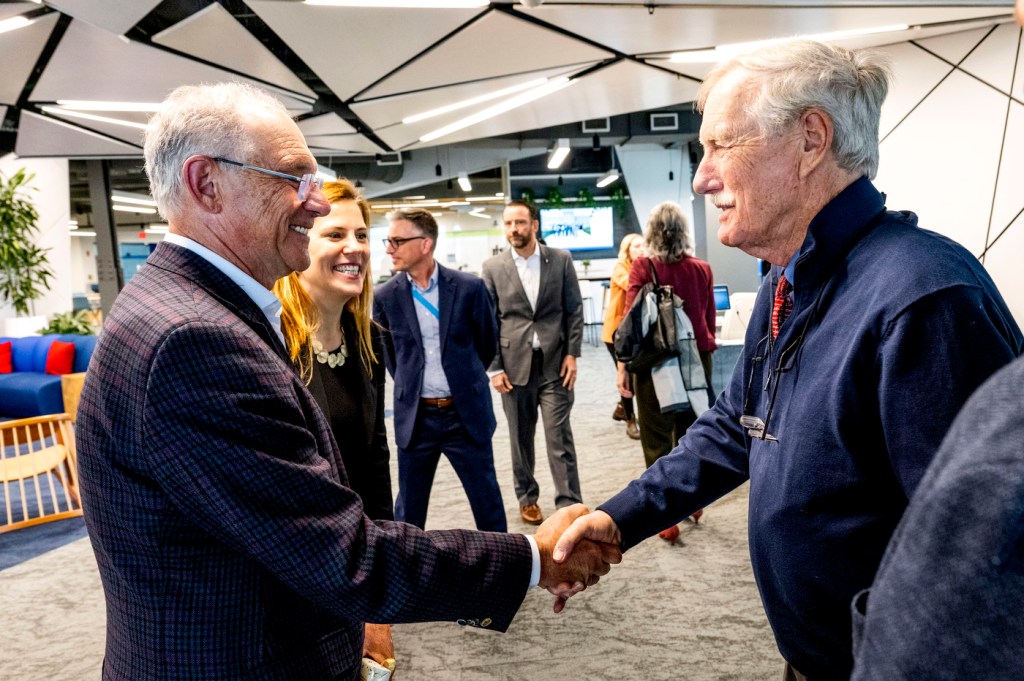
PORTLAND, Maine — Northeastern University’s Portland campus, home to the Roux Institute, has brought innovation, intellectual power and economic opportunity to Maine, Sen. Angus King said while visiting the Portland campus Friday afternoon.
King, who supported opening the Roux institute in Portland in 2020, made his first visit to the campus Friday and said he was impressed.
“This is a knowledge factory, and it’s producing knowledge and people with knowledge who are going to change the world,” King said after the tour.
The Portland campus was “the most thoughtful and greatest concentration of intellectual power,” said King, an independent from Maine.
“At today’s visit, Senator King made it clear that he supports the mission of The Roux Institute at Northeastern University — to spur innovation, build talent and drive economic growth in Maine,” said Jack Cline, vice president for federal relations at Northeastern University.



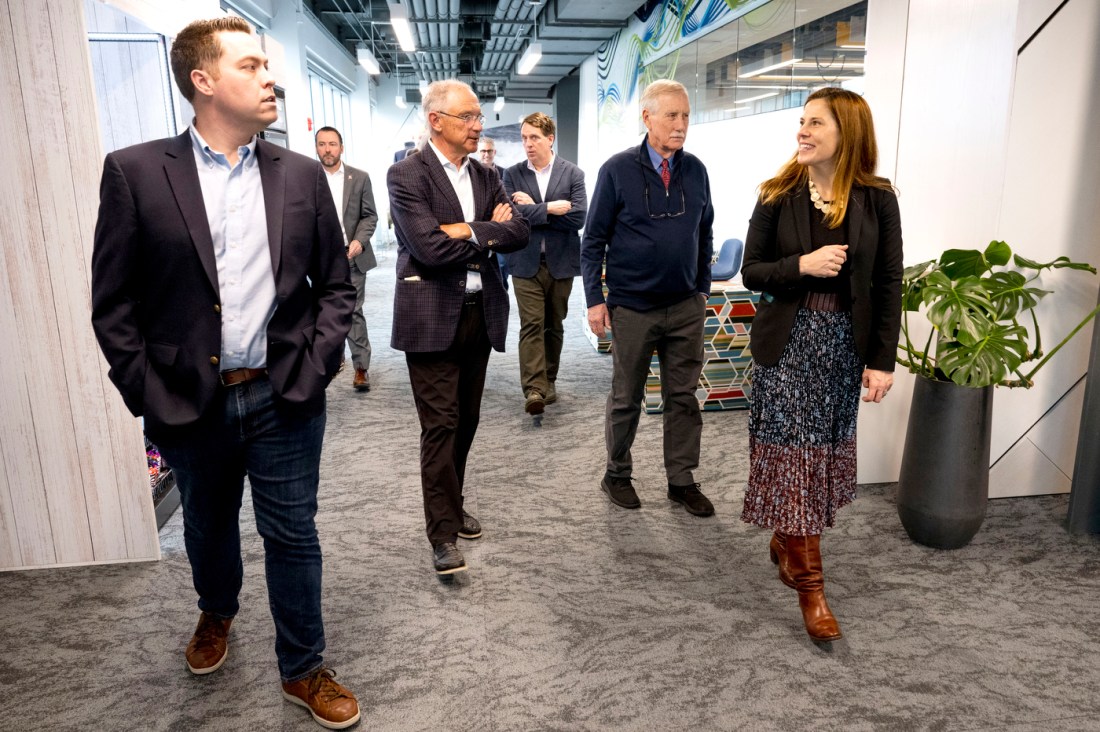
In addition to students, faculty, partners and campus leadership, King met with David Roux — benefactor of the institute, tech entrepreneur, and the co-founder and co-managing partner of BayPine Capital.
King and Northeastern share a commitment to the potential of artificial intelligence and life sciences to transform the economy of Maine. These areas of focus are the backbone of the Roux Institute’s graduate-level curriculum, said Chris Mallett, chief administrative officer at Northeastern’s Portland campus.
“The team and members of our community were able to showcase the value that Northeastern has brought to Maine and demonstrate to the senator the impact that Northeastern is having here already, just four years in,” he said. “And the best is yet to come.”
Featured Posts
Unlike California, Roux said, Maine didn’t have enough engineering talent and advanced technology for tech startups. He said the institute aims to drive innovation with a tech focus; achieve academic learning with independent and dedicated research; and make entrepreneurship integrated and fully supported.
“As we describe it, our own little Holy Trinity,” Roux said.
Today, the main focus is on being a catalyst for the future, said Mallet, especially in the next wave of technology, artificial intelligence and life sciences revolution.
“We’re doing it by educating people, doing research and innovation, incubating companies, but most importantly partnering with 200 industry organizations,” he said.
Among those organizations that Northeastern has partnered with are MaineHealth, Maine Venture Fund, The Jackson Laboratory, L.L.Bean and Bangor Savings Bank.
Out of 208 students who have already graduated from the campus, Mallett said, the majority reported post-graduation career advancement and 85% of those graduates remained in Maine.
So far, the university has co-designed and executed the custom training of 1,600 employees of industry partners in Maine — a number that is expected to grow dramatically in the coming years.


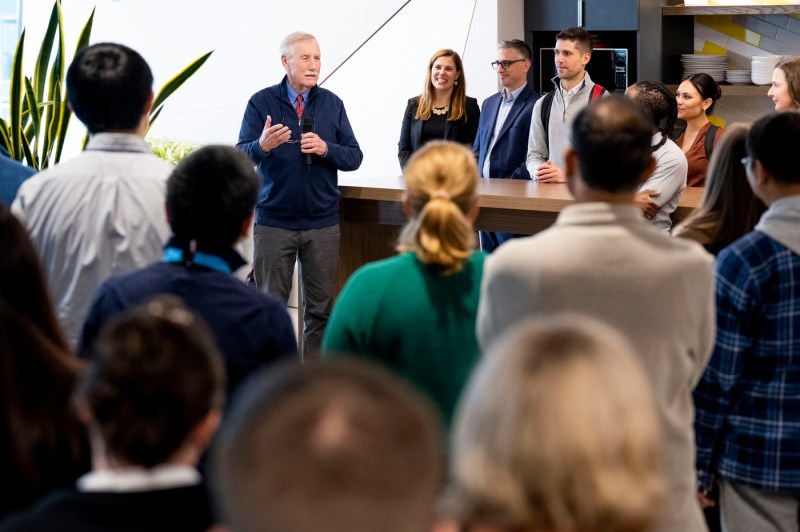
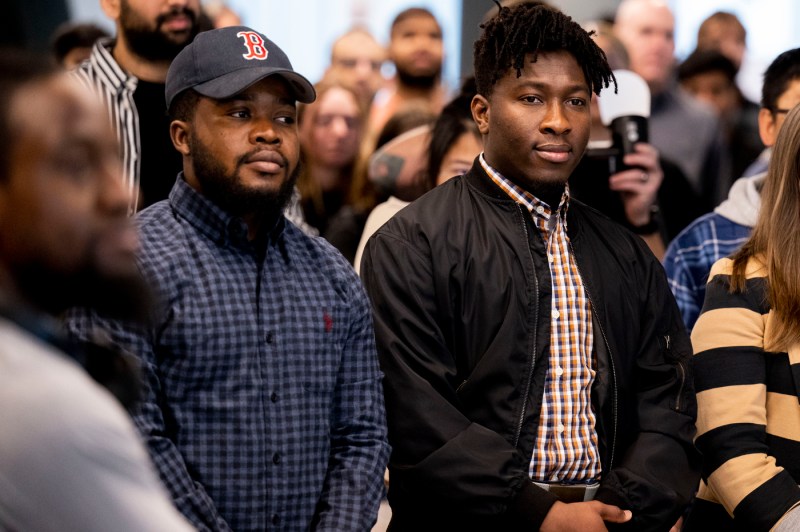
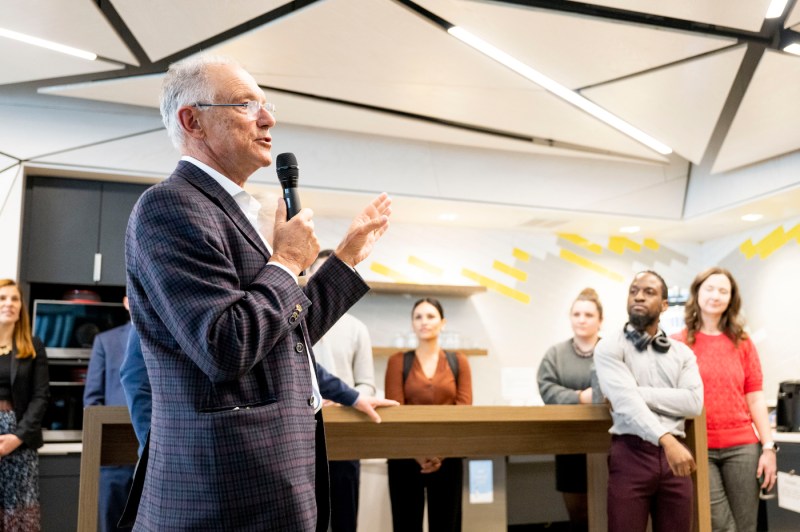
“So it is filling a niche that is going to reshape this region,” King said.
Michael Pollastri, senior vice provost and academic lead; Usama Fayyad, executive director of the Institute for Experiential AI; and Sam Scarpino, director of AI + Life Sciences at Institute for Experiential AI, spoke with the senator about the capacity and type of research and development being done at the Portland campus.
The primary areas of research, Pollastri said, are life sciences and medical research; engineering and additive manufacturing, human data interaction, and experiential AI.
“Everything we do here principally is computational in nature, so we are very data intensive,” Pollastri said.
The eight research teams at the Portland campus are led by renowned experts and have secured more than $20 million in funding in the last four years.
In addition, Scarpino described an innovation grant the university received from the Centers for Disease Control and Prevention to bring analytics into rural health care settings. The Roux Institute is partnering on this project with Maine Health and Northern Light Health and is building models to predict hospital demand for respiratory illnesses.










